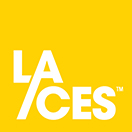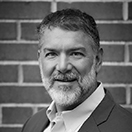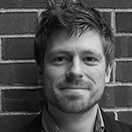Renewable Energy: A Crash Course for Landscape Architects
Recording from live webinar on 08/22/24
Renewable Energy: A Crash Course for Landscape Architects
Looking to increase your understanding of renewable energy technologies? Tired of plunking down solar panels in your plans without understanding the basics behind them? The renewable energy transition is happening at a breakneck speed, and it offers a host of opportunities for new and impactful projects and novel collaborations for landscape architects and designers.
Landscape architects most often engage with renewables through designing demonstration projects, concealing energy infrastructure with vegetation screening, and conducting visual impact assessments. Landscape architects are sometimes even hired by communities to combat potential energy projects. But what if we could do more? In collaboration with energy professionals, engineers, and beyond, landscape architects have the potential to apply their skills to generate environmental, social, and economic value beyond just energy generation for the communities that are receiving renewable energy investments and projects.
In this webinar, three interdisciplinary panelists working in or near the energy sector discuss three leading renewable energy technologies—solar, distributed wind, and geothermal—and shed light on where and how these technologies are deployed, including spatial questions and opportunities for designers. In the context of new public funding as well as private momentum behind energy projects, panelists will also have a speculative, cross-disciplinary conversation about how landscape architects can play a critical role in the energy transition.
Resources
- Webinar slides [PDF]
- List of relevant resources [PDF]
- Curated energy-related projects developed by students, faculty, and professionals in response to a prompt to visualize the Green New Deal as part of the Green New Deal Superstudio, 2020-21
Learning objectives
- Understand the basic function and siting considerations for three types of renewable energy technologies – solar, geothermal, and distributed wind
- List project examples that integrate design questions in the way energy technology is being implemented
- Explore how designers can advance public benefit, acceptance, and excitement for renewable energy efforts
Continuing Education Credits

This course has been approved for 1.0 Professional Development Hour (PDH) through the Landscape Architecture Continuing Education System (LA CES) and meets the health, safety, and welfare requirements (HSW).
To earn 1.0 PDH (LA CES/HSW):
- View the full webinar above.
- Complete the short quiz by following the link below. (You must score 75% or higher.)
- Wait ~2 weeks to receive your confirmation email once the quizzes are graded and results submitted to LA CES.
Panelists

Gabe Landes
Director of Engineering
Renewable Properties
Gabe has been working in the solar energy industry since 2011. As the Director of Engineering, Gabe’s responsibilities include developing and maintaining internal design standards, assisting with the optimization of designs, and evaluating new technologies. Prior roles include Manager of the New York City Solar Partnership, a policy and government advisory task force funded by the NYC Mayor’s Office of Sustainability, where he worked to support the growth of the solar energy industry in New York City. Gabe has a master’s degree in industrial design from the Georgia Institute of Technology and a bachelor’s degree in Earth and Environmental Sciences from Wesleyan University.

Elisabet Metcalfe
Physical Scientist
U.S. Department of Energy
Elisabet Metcalfe is a physical scientist and the communications and stakeholder engagement Lead with the U.S. Department of Energy's (DOE) Geothermal Technologies Office (GTO). She has been with GTO for 14 years, starting initially as a project officer directing and developing Enhanced Geothermal Systems RD&D opportunities and portfolios and moved into the communications and stakeholder engagement space in 2020. In this role, Elisabet oversees projects and initiatives that connect people to geothermal information and opportunities in innovative ways, with the ultimate goal of expanding the public’s understanding, support, and interest in geothermal across the technology spectrum. The latest initiatives focus particularly on building a stronger geothermal community that includes stakeholders not traditionally linked to renewable energy projects.

Danielle Preziuso
Socio-Technical Systems Engineer
Pacific Northwest National Laboratory
Danielle Preziuso is a socio-technical systems engineer at Pacific Northwest National Laboratory and a doctoral candidate at Stevens Institute of Technology. Her research lives at the intersection of the electric grid and society with the goal of supporting a just, low-carbon future. Danielle has experience assessing wind and marine energy resources, analyzing the domestic and international distributed wind markets, integrating equity into energy systems and decision-making processes, and conducting valuation studies in transactive energy markets. She currently leads PNNL’s portfolio of distributed wind energy capabilities.

Nicholas Pevzner (Moderator)
Assistant Professor
University of Pennsylvania Weitzman School of Design
Nicholas Pevzner is an Assistant Professor in the Department of Landscape Architecture and Regional Planning and a Faculty Fellow at UPenn's Kleinman Center for Energy Policy. His research spans across the topics of ecological systems, energy landscapes, and climate policy. Grounded in a socio-ecological framework, his work focuses on ecological systems and their integration into design, and energy systems and their integration into culturally contested landscapes. His teaching and research look for opportunities for decarbonization across sectors, investigating the impacts of climate policy on physical built environment, on cultural attitudes, and on implications for spatial justice.
LAF hosts live webinars in which guest presenters share innovative work and discuss timely issues. The recorded webinars are archived on LAF's website, and many can be viewed on demand to earn continuing education credits through LA CES. LAF is able to make these resources freely available thanks to the financial support of individuals like you. If you find this webinar valuable, please consider making a donation to help us cover hosting and administrative costs. To learn about upcoming webinars, sign up for our emails.











